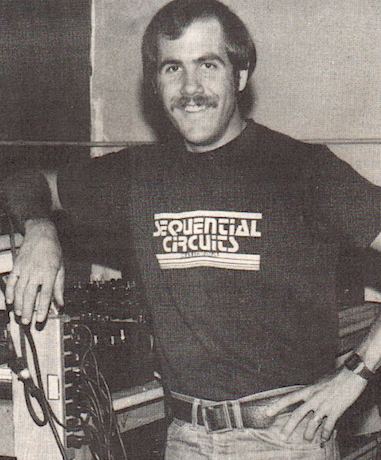Dave Smith, synthesizer and MIDI developer, dies at 72

Groundbreaking synthesizer designer and EECS alumnus Dave Smith (B.S. 1971), died on May 31st at the age of 72. As an undergraduate, Smith wrote a program to compose music as a class project. “The computers were huge,” he said. “You wrote programs on punched cards, and you had to turn them into the computer center and wait a few hours to get it back to see if it compiled or not. It was a slow process.” He had to print out his scores on a plotter. “I remember my senior year, one of my professors predicted that one day that the power of one of these [room-sized] computers would only cost $1000, and of course, everybody’s like, ‘No, no way, it couldn’t be.'” After graduation, Smith took a job developing microprocessors at Lockheed Martin and, in his spare time, built an analog sequencer for a Minimoog synthesizer, allowing it to play more than one note at a time. He founded the company Sequential Circuits in 1974 and introduced the first polyphonic and programmable synthesizer four years later, the Prophet-5. Because it used microprocessors to control its functions, it could store settings in memory, play harmonies by generating five notes at once, and was portable. It generated what is called “the signature sound of the 1980s” and shaped the music of bands like of Pink Floyd, Parliament, Genesis, Hall & Oates, Michael Jackson, the Cars, Madonna, the Talking Heads, and the Cure. Smith co-developed the Universal Synthesizer Interface (USI) in 1981 which, for the first time, allowed musicians to communicate digitally with multiple instruments through a single interface. He convinced four Japanese companies to cooperate on a shared standard, which became MIDI (Musical Instrument Digital Interface) 1.0 in 1982. “We made it low-cost so that it was easy for companies to integrate into their products. It was given away license-free because we wanted everyone to use it.” In 1997, as president of Seer Systems, Smith introduced the first professional software synthesizer, a Windows program called “Reality.” Over the decades, instruments designed by Smith were embraced by groups like Radiohead, Nine Inch Nails, Dr. Dre, and Arcade Fire. MIDI 1.0 has remained ubiquitous for forty years.